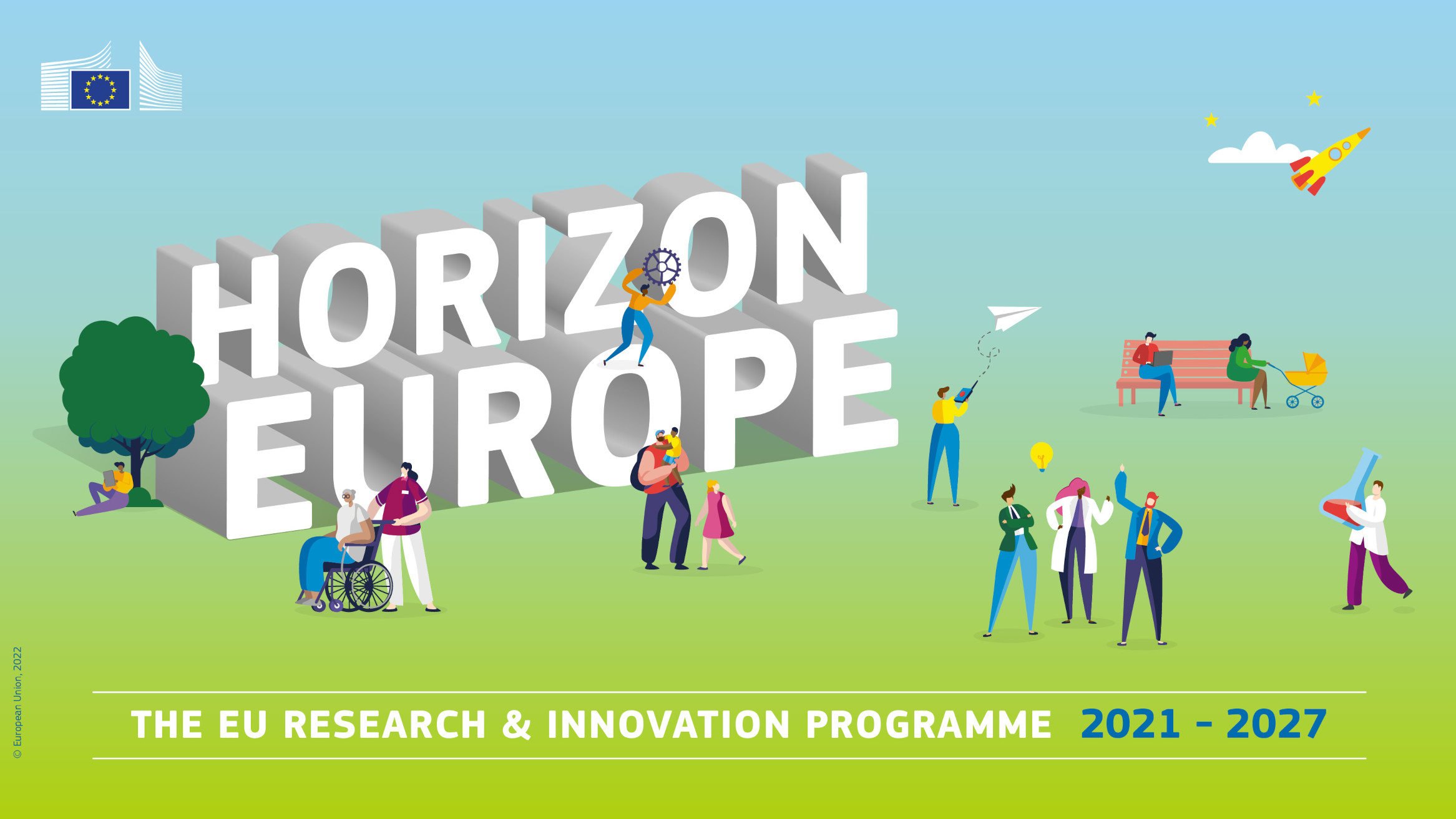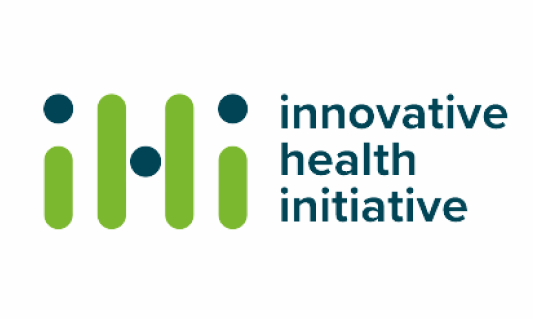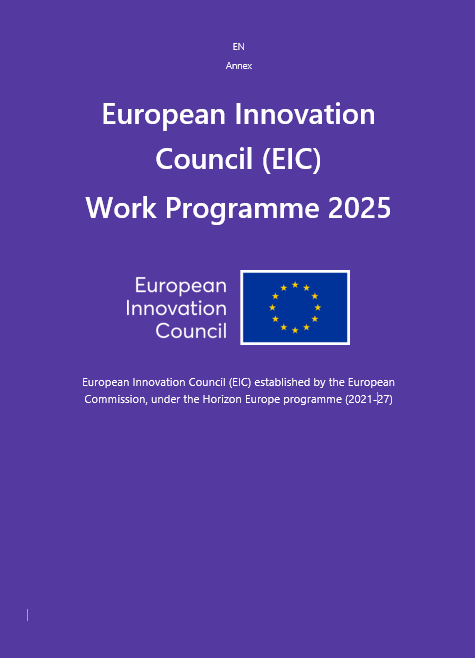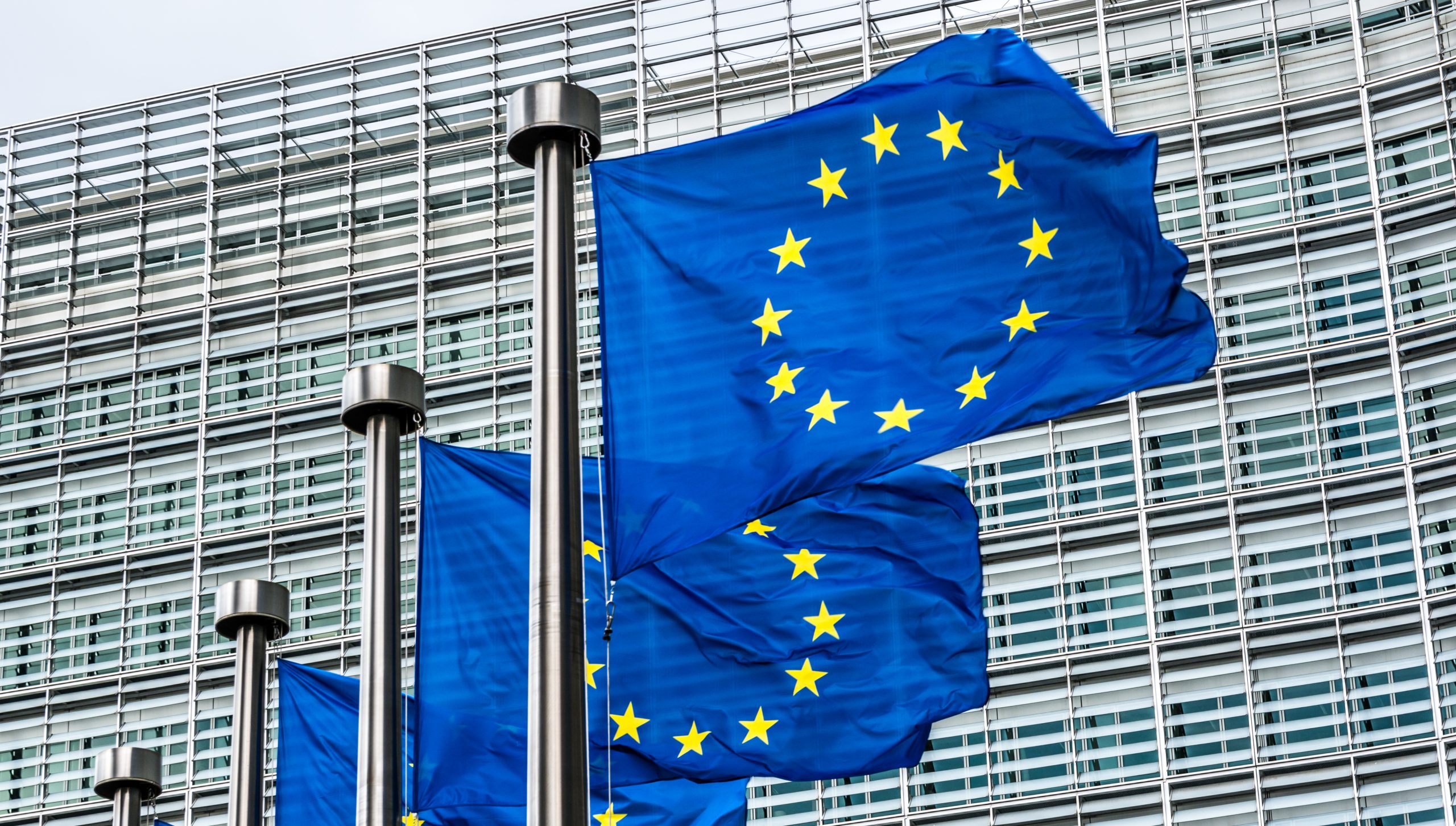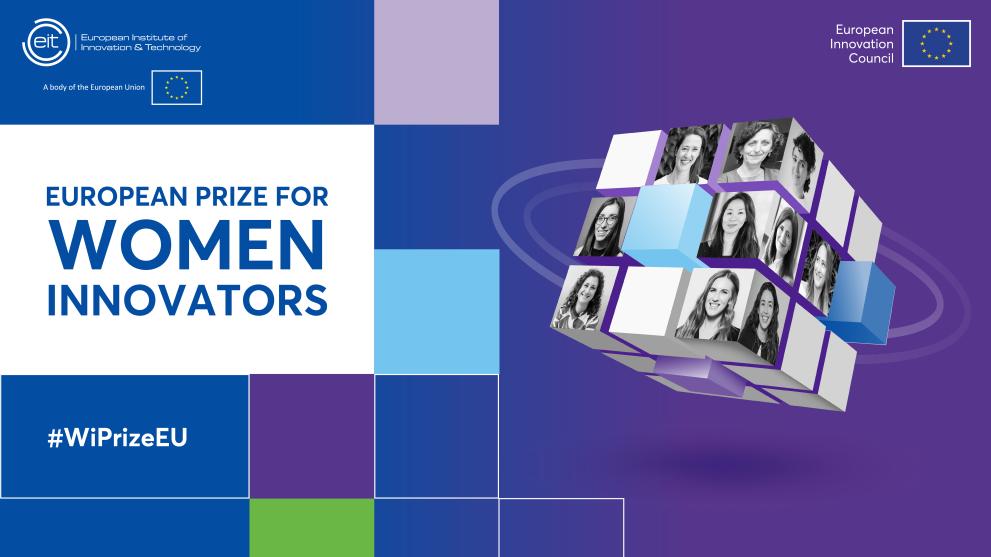Horizon Europe 2025 Work Programme Announced
Driving Europe's Innovation Ambition
The European Commission (EC) has officially launched the Horizon Europe 2025 Work Programme, a major milestone in the EU’s €95.5 billion flagship research and innovation initiative. Covering a critical year within the 2025–2027 strategic cycle, this Work Programme defines Europe's science and innovation priorities, setting a clear path towards tackling global challenges, accelerating the green and digital transitions, and securing Europe's position as a global leader in innovation.
This new Work Programme builds directly upon the Horizon Europe Strategic Plan 2025–2027, which set three overarching strategic orientations: a green transition, a digital transition, and a more resilient, competitive, inclusive, and democratic Europe.
Strategic Priorities for 2025
The 2025 Work Programme supports three interconnected priorities:
1. Green Transition:
o Accelerating progress towards climate neutrality and sustainability.
o Protecting biodiversity and promoting circular economy practices.
2. Digital Transition:
o Strengthening Europe's digital sovereignty and advancing artificial intelligence, quantum technologies, cybersecurity, and next-generation computing.
3. Resilient and Inclusive Society:
o Building economic competitiveness, safeguarding democratic institutions, and promoting inclusivity and social resilience.
This programme focuses on open strategic autonomy and aims to strengthen Europe's technological and industrial leadership, while ensuring that the transitions are socially fair and inclusive.
Funding Overview
In 2025, over €7.2 billion will be invested across Horizon Europe's pillars and thematic clusters. The funding distribution reflects the EU’s commitment to scientific excellence, global competitiveness, and societal impact.
The programme is structured around Horizon Europe's three pillars:
• Pillar I: Excellent Science
o Supports frontier research via the European Research Council (ERC) and the Marie Skłodowska-Curie Actions (MSCA) for researcher mobility and training.
o Strengthens world-class research infrastructures critical for advanced science.
• Pillar II: Global Challenges and European Industrial Competitiveness
o Funds research under six thematic clusters:
- Health
- Culture, Creativity, and Inclusive Society
- Civil Security for Society
- Digital, Industry, and Space
- Climate, Energy, and Mobility
- Food, Bioeconomy, Natural Resources, Agriculture, and Environment
- Encourages cross-sector collaboration to tackle complex societal challenges.
• Pillar III: Innovative Europe
o Advances innovation ecosystems, notably through the European Innovation Council (EIC), supporting breakthrough technologies and high-potential companies.
o Strengthens the European Institute of Innovation and Technology (EIT) and regional innovation hubs.
Beyond the three pillars, the programme also includes actions to widen participation and strengthen the European Research Area (ERA), ensuring all member states benefit from scientific progress and innovation.
Green and Climate Focus
In line with the European Green Deal, the 2025 Work Programme reinforces Europe's leadership in environmental innovation:
• 35% of Horizon Europe's total budget is earmarked for climate-related activities.
• A new and notable commitment is that at least 10% of the Horizon Europe budget will now be dedicated specifically to biodiversity-related research.
Topics will address renewable energy systems, zero-emission mobility, climate adaptation, sustainable food systems, and restoration of ecosystems, helping Europe meet its 2030 climate and biodiversity targets.
European Innovation Council 2025 Actions
The European Innovation Council (EIC) plays a pivotal role in the 2025 Work Programme, with over €1.4 billion in funding to accelerate deep tech innovation.
The EIC's three major funding instruments are:
• EIC Pathfinder: Supports early-stage, high-risk research into revolutionary technologies.
• EIC Transition: Bridges the gap between research and market by funding proof-of-concept and prototype development.
• EIC Accelerator: Provides grants and blended finance (grants plus equity investment) to scale up start-ups and SMEs, especially in strategic areas such as health, digital, and clean tech.
The EIC continues to position Europe at the forefront of deep tech entrepreneurship, driving the next generation of global technology champions.
Widening Participation and Strengthening the ERA
The 2025 programme places strong emphasis on inclusivity and geographic balance across Europe. Actions under the Widening Participation and Strengthening the ERA section aim to:
• Boost the research and innovation capacity of less-performing countries (often referred to as “Widening countries”).
• Promote brain circulation and reduce the R&D divide across regions.
• Strengthen gender equality, open science practices, and citizen engagement in research activities.
By creating more equitable opportunities for participation, the EU ensures that excellence is fostered across all regions, not just in traditional innovation hubs.
International Collaboration
Recognising that global challenges require global solutions; the 2025 Work Programme maintains a strong emphasis on international cooperation.
Key initiatives include:
• Targeted collaboration with strategic partner countries and regions, notably Africa, the Western Balkans, and Latin America.
• Specific calls for cooperation in areas like global health, climate action, and resilient food systems.
The EU continues to position Horizon Europe as an open platform for global scientific collaboration, while safeguarding Europe's strategic interests and ethical standards.
Stakeholder Consultation and Co-Design Approach
In shaping the 2025 Work Programme, the EC engaged extensively with stakeholders through a consultation process between April and May 2024. Researchers, industry leaders, policymakers, and civil society representatives contributed feedback, ensuring that the programme reflects the needs, expectations, and expertise of Europe's innovation community.
This co-design approach ensures greater relevance, transparency, and impact across funded projects.
For more information about the Horizon Europe work programmes, click here.
IHI launches €191m applicant-driven call for proposals
On 16th January 2025, the Innovative Health Initiative (IHI) unveiled two significant funding opportunities: IHI Call 9 and IHI Call 10. Collectively, these calls represent a substantial investment in health research and innovation, with a combined budget of approximately €261 million. This funding is sourced from Horizon Europe, the European Union's research and innovation program, and is matched by contributions from Europe's health industries.
IHI Call 9: Embracing an Applicant-Driven Approach
IHI Call 9 introduces a novel, applicant-driven model, marking a departure from previous IHI calls where specific challenges were predefined. In this call, applicants are invited to explore the IHI Strategic Research and Innovation Agenda (SRIA) to identify opportunities and develop proposals that align with its objectives. This approach empowers researchers and innovators to propose projects that address unmet public health needs through large-scale, cross-sector public-private partnerships. Proposals should clearly articulate their anticipated impacts on society, the economy, and science, while adhering to IHI's pre-competitive framework.
Niklas Blomberg, IHI's Executive Director, emphasised the transformative potential of this approach:
“With IHI Call 9, we are really pioneering a novel, more open way of identifying high-impact projects. We expect that this applicant-led approach will deliver transformative projects exploring areas of health research that we haven't looked at so far, and bring in organisations that are not yet part of our community.”
The total investment for Call 9 is €191 million. As a single-stage call, applicants must collaborate with appropriate industry partners to ensure that half of their project's costs are covered by in-kind contributions from IHI's industry members and, if applicable, IHI contributing partners.
IHI Call 10: Targeted Topics in Health Innovation
Concurrently, IHI launched Call 10, a two-stage call for proposals focusing on three critical areas:
- Reducing PFAS in the Health Sector
Per- and poly-fluoroalkyl substances (PFAS) are synthetic chemicals integral to various healthcare products, including medicines, medical devices, packaging, and cleaning agents. However, due to their persistence in the environment and potential health risks, there is a growing need to minimise their use. This topic aims to investigate viable alternatives to PFAS and, where replacement isn't feasible, explore strategies to reduce exposure and emissions while maintaining product quality and safety.
- Advancing the European Health Data Space (EHDS)
The EHDS initiative seeks to unlock the potential of safe and secure exchange, use, and reuse of health data within the EU. This topic focuses on developing frameworks, recommendations, and tools to support the EHDS's implementation, particularly concerning the reuse of data for research purposes. The goal is to build trust among stakeholders and create a secure, collaborative ecosystem that optimizes data use and facilitates research advancements while protecting intellectual property.
- Implementing Digital Labels for Medical Devices
As medical devices become more compact, the amount of information required on printed labels has increased, often leading to user difficulties in accessing and reading essential details. This topic aims to establish a digital labeling concept applicable to all types and classes of medical and in vitro devices. By enabling users to access up-to-date, targeted information via digital means, such as scanning a QR code, this initiative seeks to enhance user experience and reduce the environmental impact associated with extensive printed materials.
The total budget allocated for the three topics under IHI Call 10 is nearly €70 million, equally funded by Horizon Europe and contributions from IHI industry members and contributing partners.
Application Process and Deadlines
For IHI Call 9, being a single-stage call, applicants are required to submit full proposals by 29th April 2025. In contrast, IHI Call 10 follows a two-stage process, with short proposals due by 23rd April 2025. Detailed information on application procedures, eligibility criteria, and evaluation processes can be found on the IHI website.
About the Innovative Health Initiative (IHI)
The IHI is a public-private partnership between the European Union and European industry associations representing the pharmaceutical, medical technology, biotechnology, digital health, and vaccine sectors. Its mission is to translate health research and innovation into tangible benefits for patients and society, ensuring that Europe remains at the forefront of interdisciplinary, sustainable, patient-centric health research. By supporting projects that foster collaboration across diverse sectors, IHI aims to pave the way for a more integrated approach to healthcare, encompassing prevention, diagnosis, treatment, and disease management.
These new calls underscore IHI's commitment to fostering innovation in health research by encouraging collaborative efforts that address pressing public health challenges and leverage the strengths of both public and private sectors.
Proposal preparation grants for 2024 and 2025 calls
Innovate UK and the British Academy have funding schemes open for Horizon Europe Pump Priming Grants, to enable SMEs, research organisations and universities in the UK build partnerships and develop proposals. If you are planning a submission to a 2024 or 2025 Horizon Europe call, one of these schemes may support the development of your proposal.
Innovate UK Horizon Europe Pump Priming
UK SMEs can apply for a grant of up to £5000 (Ex-VAT) to help them in their preparation for submitting a Horizon Europe proposal for a collaborative opportunity. This could be used to fund attendance at networking events, to contribute to the cost of joining associations and other activities that are solely directed at future Horizon Europe participation. Note that if you have already received an Innovate UK Pump Priming grant you will not be able to apply for another in this round. The closing date for applications is 17th January 2025 and the final date on which claims can be made for payment is 17th February 2025.
British Academy Horizon Europe Pump Priming
Principal Investigators (PIs) at universities and research institutions can apply for a grant of up to £10,000 to help them in their preparations for submitting a Horizon Europe proposal for Pillar 2 of Horizon Europe – Global Challenges and European Industrial Competitiveness. All of the details such as eligibility, closing dates, etc., are published on the British Academy website and any questions about this scheme should be addressed directly to them.
EU and Japan Enter Negotiations for Horizon Europe Association
On 29th November 2024, the European Union (EU) and Japan commenced formal negotiations to integrate Japan into Horizon Europe, the EU's flagship research and innovation programme. This move represents a significant step forward in deepening international scientific collaboration and highlights the global importance of cooperative research in tackling shared challenges. By exploring Japan's association with Horizon Europe, both parties aim to create a mutually beneficial framework for advancing scientific excellence and innovation.
What is Horizon Europe?
Horizon Europe is the EU's most ambitious research and innovation programme to date, with a budget exceeding €95.5 billion for 2021–2027. It succeeds Horizon 2020 and is structured around three key pillars:
- Excellent Science: Supporting top-tier researchers and frontier science through grants and scholarships.
- Global Challenges and European Industrial Competitiveness: Tackling pressing global issues such as climate change, health, and digital transformation.
- Innovative Europe: Boosting Europe's innovation potential by bridging the gap between research and market-ready products or solutions.
As the cornerstone of the EU's research agenda, Horizon Europe facilitates cross-border collaboration, driving breakthroughs that are often unattainable through isolated efforts.
The Context of EU-Japan Cooperation
Japan and the EU share a longstanding history of collaboration in science and technology. This relationship is built on mutual respect and a shared vision of addressing global challenges through innovative solutions. Over the years, their partnership has flourished in areas such as climate action, health sciences, renewable energy, and digital technologies.
Under Horizon 2020, the EU's previous research framework, Japanese organisations actively participated in 176 projects, contributing their expertise to collaborative research efforts. This history sets a strong precedent for Japan's potential association with Horizon Europe.
Why is This Association Significant?
The negotiations are focused on Japan's association with Pillar II of Horizon Europe, which is dedicated to addressing global challenges. By joining this pillar, Japanese researchers and institutions will have the opportunity to:
- Participate in multinational research consortia.
- Lead and coordinate joint projects with EU partners.
- Access funding and resources from the Horizon Europe programme.
This agreement would enable Japan to contribute directly to large-scale, multidisciplinary research initiatives designed to tackle issues like climate change, health crises, digital innovation, and sustainable development.
A Strategic Milestone for Japan and the EU
The association negotiations align with broader strategic objectives for both Japan and the EU.
- For the EU: This move reinforces its commitment to fostering global partnerships in research and innovation, ensuring that Europe remains a hub for scientific excellence. By collaborating with leading global innovators like Japan, the EU strengthens its position in tackling complex global challenges.
- For Japan: Associating with Horizon Europe provides Japanese researchers with access to one of the world's most prestigious and well-funded research platforms. It also allows Japan to integrate more deeply into global research networks, expanding its influence and leveraging international expertise.
Shared Goals: Addressing the Green and Digital Transitions
Iliana Ivanova, the European Commissioner for Innovation, Research, Culture, Education, and Youth, highlighted the importance of this collaboration:
"The opening of the negotiations on the association of Japan to Horizon Europe marks a step change in our cooperation. For both EU and Japan, research and innovation are key to ensuring competitiveness and achieving the green and digital transitions. Together, we will be able to reach them faster and find solutions to the world’s most pressing challenges."
The green transition involves achieving carbon neutrality by mid-century, a goal shared by both Japan and the EU. Collaborative projects in renewable energy, carbon capture, sustainable agriculture, and electric mobility are expected to play a pivotal role in reaching these objectives.
Similarly, the digital transition focuses on advancing artificial intelligence, data science, and cybersecurity. By pooling resources and expertise, Japan and the EU aim to lead in setting global standards for emerging technologies.
What Does Japan Stand to Gain?
Japan's association with Horizon Europe presents numerous advantages:
- Increased Collaboration: Japanese institutions will have greater opportunities to collaborate with European universities, research centres, and industries.
- Access to Funding: Japanese researchers can directly benefit from Horizon Europe's substantial financial resources, enabling them to pursue ambitious projects.
- Global Influence: Participating in EU-led initiatives enhances Japan’s visibility and influence in the global scientific community.
- Innovation Boost: Exposure to diverse perspectives and cutting-edge research can catalyse innovation within Japan's domestic research ecosystem.
Challenges and Considerations
While the potential benefits are substantial, several challenges must be addressed during the negotiation process:
- Funding Mechanisms: Determining how Japanese contributions will align with Horizon Europe's funding model.
- Regulatory Alignment: Ensuring that Japan’s research policies and intellectual property laws are compatible with EU standards.
- Administrative Barriers: Streamlining the integration process to facilitate seamless collaboration between Japanese and European researchers.
These challenges highlight the need for careful planning and mutual understanding to make the association successful.
Building a Global Research Ecosystem
The EU's Horizon Europe programme has already established partnerships with other non-EU countries, including Canada, New Zealand, and South Korea. These associations demonstrate the EU’s commitment to fostering a global research ecosystem that transcends geographical boundaries. Japan's inclusion in this network would not only strengthen bilateral ties but also contribute to a more interconnected and collaborative global scientific community.
The EIC 2025 Work Programme
The European Innovation Council (EIC) unveiled its 2025 Work Programme, highlighting ambitious initiatives designed to solidify Europe’s position as a leader in breakthrough technologies and strengthen its strategic autonomy. By funding high-risk, high-reward innovations, the EIC aims to transform scientific discoveries into market-ready technologies, fostering an environment where innovative companies can thrive and compete globally. This article delves into the essential changes, major highlights, and anticipated impact of the EIC 2025 Work Programme.
1. The New STEP Scale-Up Scheme: Bridging the Funding Gap
One of the centrepieces of the EIC 2025 Work Programme is the newly introduced STEP Scale-Up Scheme. This €300 million initiative is a direct response to the well-documented challenges European deep-tech startups face in securing sufficient growth funding. While Europe has excelled in generating innovative ideas and producing early-stage start-ups, a lack of substantial follow-on funding has limited many companies’ abilities to scale globally.
The STEP Scale-Up Scheme is specifically tailored to address this gap, targeting high-impact companies developing critical technologies. These include digital innovations, clean tech, and biotech solutions - sectors deemed essential for Europe’s competitive and strategic positioning. The scheme will prioritise funding for projects that have a clear path to scale but need significant investment to reach that next level. By doing so, the EIC aims to prevent promising companies from seeking funding outside the EU, which often results in them relocating.
2. Enhanced Focus on Strategic EIC Challenges
The EIC has refined and expanded its EIC Challenges, allocating over €370 million to address pressing global and European priorities. EIC Challenges act as targeted calls for proposals within specific high-potential fields, encouraging innovators to tackle some of the world’s most complex problems. For 2025, the EIC has introduced new and strategically relevant challenges, each designed to push the boundaries of current knowledge and technological capability.
Key areas of focus include:
• Generative Artificial Intelligence (AI): As generative AI continues to disrupt industries, the EIC Challenge in this domain is set to accelerate the development of Europe-centred AI innovations. The goal is to build competitive AI applications that address Europe’s ethical, social, and economic needs, ultimately ensuring Europe’s sovereignty over AI technologies.
• Climate-Resilient Crops: Responding to the urgent need for sustainable agriculture in the face of climate change, this challenge calls for the development of crops that can withstand increasingly extreme weather patterns. Innovations in this space are expected to bolster food security and reduce dependency on external agricultural imports.
• Autonomous Robots for Sustainable Industry: Targeting robotics and automation in industrial settings, this challenge aims to make European industries more sustainable and efficient. By promoting innovations in autonomous robotic systems, the EIC hopes to minimise environmental impact, reduce waste, and create safer working environments.
• Agri-Tech Solutions: Recognising agriculture as a backbone of European sustainability, the EIC is also investing in disruptive agri-tech solutions. These solutions will focus on precision farming, smart sensors, and AI-enabled decision-making tools to support sustainable practices and enhance productivity across European agriculture.
These challenges reflect the EIC’s commitment to addressing both immediate and long-term strategic needs, ensuring that Europe stays at the forefront of technology-driven societal change.
EIC Transition Programme: Bridging Research and Market
The 2025 Work Programme allocates €98 million to the EIC Transition Open, which has no predefined thematic priorities and is open to proposals in any field of science, technology, or application.
The EIC Transition programme is designed to mature novel technologies beyond the experimental proof of principle, facilitating their progression from laboratory settings to real-world applications. It supports single entities or small consortia, including SMEs, start-ups, research organisations, and universities, aiming to validate technologies and develop business plans for specific applications at Technology Readiness Levels (TRL) 3 to 6.
Key features of the EIC Transition include:
• Funding Support: Grants of up to €2.5 million are available to validate and demonstrate technology in application-relevant environments and develop market readiness.
• Booster Grants: Additional booster grants, not exceeding €50,000, are offered for ongoing projects to explore potential commercialization pathways or for portfolio activities.
• Business Acceleration Services (BAS): Beneficiaries gain access to a range of tailor-made BAS, including coaching, mentoring, expertise, training, and connections to global partners and innovation ecosystems.
EIC Accelerator Programme: Scaling Innovations
The EIC Accelerator programme offers €634 million for start-ups and SMEs to develop and scale up innovations with the potential to create new markets or disrupt existing ones. It supports companies aiming to scale up and seeking substantial funding, particularly when the associated risks are too high for private investors alone.
Key components of the EIC Accelerator include:
• Grant Funding: Lump sum contributions below €2.5 million are provided for innovation activities (TRL 6-8), to be completed within 24 months.
• Investment Component: To bridge the gap for high-risk innovations, the programme offers equity investments ranging from €0.5 million to €10 million, with higher amounts available under the STEP Scale-Up scheme. (Not available to UK entities).
• Blended Finance: A combination of grant and equity or quasi-equity (such as convertible loans) is available to support both innovation activities and market deployment.
• Business Acceleration Services (BAS): Similar to the Transition programme, Accelerator beneficiaries have access to BAS, facilitating connections with global partners, coaches, mentors, and innovation ecosystems.
3. Expanded Business Acceleration Services (BAS) for Wider Inclusivity
Recognising that financial support alone isn’t sufficient, the EIC has broadened its Business Acceleration Services (BAS), giving startups and SMEs access to invaluable non-financial resources. This includes mentorship, networking opportunities, and tailored coaching designed to support companies at all stages of growth. The BAS programme will be further expanded in 2025, with an emphasis on reaching underrepresented regions and sectors across the EU.
For the first time, the BAS will specifically target innovators from underrepresented regions, addressing imbalances within the EU’s innovation ecosystem. By providing these innovators with the same level of support available to their counterparts in more established innovation hubs, the EIC aims to create a more balanced and inclusive landscape for European innovation.
Additionally, Seals of Excellence will be awarded to highly promising projects that do not receive EIC funding, guiding them towards alternative European and national funding opportunities. This measure serves to reduce the potential for lost innovation due to limited resources, maximising the impact of the EIC's efforts.
4. The Role of Strategic Autonomy and Sustainability
The EIC 2025 Work Programme places a strong emphasis on strategic autonomy, particularly within sectors deemed critical to Europe’s long-term competitiveness. This includes ensuring that Europe has control over key technologies that could influence its economic independence, such as clean energy solutions, digital innovations, and health-related technologies. By investing in these areas, the EIC aims to reduce Europe’s reliance on non-EU countries for strategic resources and technologies, thereby safeguarding its economic and technological resilience.
Sustainability is also a cornerstone of the 2025 Work Programme. The EIC has aligned its funding strategies with the EU’s broader Green Deal objectives, investing in innovations that promote environmental protection, sustainable resource use, and emissions reduction. In doing so, the EIC supports Europe’s transition to a green economy, ensuring that new technologies contribute positively to the global fight against climate change.
5. Commitment to Research and Innovation Across Key Technology Sectors
The EIC 2025 Work Programme continues its tradition of fostering deep-tech innovation by supporting groundbreaking research and innovation. Deep-tech areas such as quantum computing, advanced materials, and biotechnology remain focal points of the EIC’s funding strategy. These fields have the potential to redefine existing markets and create entirely new ones, driving economic growth and technological leadership within the EU.
In biotechnology, for instance, the EIC has dedicated funding to innovations in gene editing, personalised medicine, and biomanufacturing, areas that could revolutionise healthcare and therapeutics. Similarly, quantum computing is recognised for its potential to transform industries by providing unprecedented computational power, which could support advancements in fields ranging from climate modelling to cryptography.
6. Boosting Public-Private Partnerships and Industry Engagement
A significant aspect of the EIC’s 2025 strategy is encouraging stronger partnerships between the public and private sectors. The Work Programme outlines initiatives to foster collaboration between EIC-funded projects and major industry players, creating pathways for knowledge transfer, co-investment, and broader market access. Through these partnerships, the EIC hopes to fast-track the development and commercialisation of technologies, enabling smaller innovators to access the resources and expertise they need to scale.
In 2025, the EIC will place added emphasis on co-investment schemes, wherein public funding is matched by private sector investment. These co-investment opportunities are intended to mobilise additional financial resources, ensuring that European deep-tech startups have access to the capital required to scale.
You can download the full EIC 2025 Work Programme here.
UK’s position on the EU's Research and Innovation Framework Programme
In September 2024, the UK government released a position paper outlining its stance on the EU's upcoming Research and Innovation Framework Programme (FP10). This document highlights the UK's commitment to ongoing collaboration with the EU, focusing on key priorities such as research excellence, global collaboration, security, and the need for reduced administrative burdens. While highlighting the potential benefits of such cooperation, the paper also details the UK’s desire for fair financial contributions and security considerations, setting the stage for future negotiations between the UK and the EU.
Background: The UK's History with EU Research Frameworks
Before delving into the specifics of the UK’s current position, it is essential to understand the history between the UK and the EU in the context of research and innovation collaboration. The EU’s Research and Innovation Framework Programmes, which date back to the 1980s, have always been integral to fostering collaborative research across Europe. Horizon 2020, the predecessor of Horizon Europe, saw the UK as one of the largest beneficiaries and contributors. UK researchers, universities, and businesses often ranked among the top recipients of EU research funding, which allowed them to lead cutting-edge projects and contribute to critical scientific advancements.
However, the UK's decision to leave the EU in 2016 posed significant uncertainties about its future participation in these programs. The post-Brexit Trade and Cooperation Agreement provided a pathway for UK association with Horizon Europe, but the exact terms and conditions were subject to negotiations. The document under review highlights the UK's aspirations to maintain a productive relationship with the EU in the realm of research and innovation, ensuring that Brexit does not lead to scientific isolation.
- Core Objectives of the UK’s Position
The UK government's primary objective in its position on the EU's Research and Innovation Framework Programme is to maintain access to cutting-edge research and innovation networks while safeguarding its own national interests. To achieve this, the document outlines several key goals:
1. Promoting Excellence in Research: The UK emphasises the need for continued participation in programs that prioritise research excellence. The country’s world-leading universities and research institutions have long been central to Europe's research landscape, and the UK aims to retain this role through FP10 (Framework Programme 10). The government stresses that research excellence should remain a cornerstone of EU research programs to ensure that the best minds and institutions can collaborate on solving global challenges.
2. Global Openness and Collaboration: The UK seeks to promote global openness in research. While Europe remains a critical partner, the UK also aspires to expand its research networks to include other countries like the United States, Japan, and Canada. The document advocates for a framework that allows non-EU countries to contribute to and benefit from EU research programs, creating a truly global research ecosystem.
3. Addressing Global Challenges: Tackling issues such as climate change, public health (e.g., pandemic preparedness), and digital transformation are key priorities for the UK. The EU’s Horizon Europe initiative is already aligned with these objectives, and the UK government stresses the importance of continuing to address these global challenges in partnership with the EU and beyond. The position paper highlights that research aimed at solving cross-border problems will be most effective when countries collaborate across geographical boundaries.
4. Security in Research: Given the geopolitical landscape and the increasing importance of data and technology security, the UK insists that any association with EU research programs must consider security issues. This includes protecting sensitive research data, intellectual property, and ensuring that the UK’s national security interests are upheld. The government seeks a balance between open scientific collaboration and safeguarding national security concerns, especially in areas like AI, cybersecurity, and quantum computing.
5. Reducing Administrative Burdens: One of the UK's criticisms of the EU research framework has been its administrative complexity. The UK government advocates for a more streamlined and efficient system that encourages participation from researchers, especially from small and medium-sized enterprises (SMEs). A reduction in bureaucratic red tape would enable smoother collaboration and a more dynamic research environment.
6. Ensuring Value for Money: Post-Brexit, the UK has faced pressure to demonstrate that any financial contributions to EU research programs deliver tangible benefits for its economy and society. The document emphasises that the UK’s participation in FP10 should be based on a fair contribution model where the benefits to the UK are commensurate with its investment. This is crucial in ensuring public support for continued participation in EU initiatives.
Opportunities and Challenges of UK-EU Research Collaboration
The UK’s position on associating with the EU’s Framework Programme reflects both opportunities and challenges. On the one hand, continued collaboration offers substantial benefits. Horizon Europe provides access to some of the world’s most advanced research infrastructures, databases, and networks. UK scientists, universities, and companies would have the opportunity to collaborate with their EU counterparts on groundbreaking projects that are too large or complex to be undertaken by one country alone.
On the other hand, the relationship is not without challenges. The Brexit process has introduced uncertainties around the legal, financial, and operational frameworks governing UK participation in EU programs. There is also the potential for political friction, especially if either side perceives that the terms of collaboration are not mutually beneficial. The UK government, in its position paper, acknowledges these challenges but maintains that constructive negotiations can overcome them.
The Potential Impact on the UK’s Research Ecosystem
Should the UK secure a favourable association agreement with the EU's Research and Innovation Framework Programme, it stands to benefit in several ways. First and foremost, UK researchers will continue to have access to the EU’s vast research networks and funding opportunities. This would be particularly advantageous for fields such as biomedical research, climate science, and artificial intelligence, where collaboration across borders accelerates innovation.
Moreover, the UK’s commitment to global openness means that the country can continue to foster relationships with non-EU partners while benefiting from its proximity to Europe. This dual approach could strengthen the UK's position as a global research hub, attracting top talent and investment from around the world.
However, if the UK fails to secure an agreement or chooses not to participate, the consequences could be significant. UK institutions would lose access to EU funding and collaborative networks, potentially putting them at a disadvantage compared to their European counterparts. This could lead to a “brain drain,” with top researchers opting to work in countries with better funding opportunities. Furthermore, the UK's research output could suffer if it becomes more difficult to participate in large-scale, multinational research projects.
Navigating the Future of UK-EU Research Relations
The UK’s position on the EU’s Research and Innovation Framework Programme reflects a desire for continued collaboration in a post-Brexit world. By prioritising research excellence, global openness, and a fair financial contribution, the UK aims to remain a central player in European and global research networks. The government's stance highlights the need to balance national interests with the benefits of international cooperation, particularly in tackling global challenges that require collective action.
Moving forward, the success of UK-EU research relations will depend on constructive negotiations that address both the opportunities and challenges of collaboration. If managed effectively, the UK could emerge as a stronger, more globally connected research leader, leveraging its relationships with both the EU and the wider world to drive scientific and technological innovation.
For detailed information on the UK's position, you can access the full document here.
EU Research and Innovation Policy: Key Agendas for Autumn 2024
As Autumn 2024 unfolds, the European Union’s (EU) research and innovation (R&I) sector is entering a period of strategic transformation, marked by new appointments, evolving policies, and critical budgetary discussions. The upcoming months promise significant shifts that will define the future of European competitiveness, defence, and research collaboration. Here's a look at the key points on the EU’s R&I agenda.
New Research Commissioner: Expectations and Priorities
One of the most eagerly anticipated events is the appointment of a new research commissioner. This individual, set to be nominated and quizzed by Members of the European Parliament (MEPs) in the coming months, will significantly influence the EU’s R&I policies for the foreseeable future. The commissioner’s role will be pivotal in guiding the remaining years of Horizon Europe (the EU’s current research and innovation framework) and laying the groundwork for its successor, Framework Programme 10 (FP10).
There is speculation about whether the research portfolio will remain a standalone entity or be merged into a broader portfolio encompassing competitiveness, internal markets, or the economy. As stakeholders wait for the appointment, many are advocating for R&I to stay at the heart of European policy, ensuring continued focus on innovation as a driver of competitiveness.
Defence and Research: The Role of the European Defence Fund
For the first time, defence research is expected to play a more prominent role in EU R&I policy. Ursula von der Leyen, in her campaign for re-election as European Commission President, highlighted defence as a top priority. This includes bolstering the European Defence Fund (EDF), which is designed to support research and development in defence technologies. While the immediate focus remains on urgent defence needs, especially in light of the ongoing situation in Ukraine, long-term plans are also in motion to enhance European defence capabilities through R&D initiatives.
A Clean Industrial Deal: A Pathway to Green Competitiveness
Von der Leyen’s agenda also includes the introduction of a Clean Industrial Deal, which is set to accelerate green technologies across Europe. The goal is to create lead markets in industries such as clean steel and renewable energy, with a particular emphasis on simplifying processes like planning and permitting for green projects. This initiative is part of a broader strategy aimed at positioning the EU as a global leader in sustainable industrial practices.
Although many of these plans are part of von der Leyen’s long-term vision, the Clean Industrial Deal could be instrumental in driving R&I investments in green technologies, aligning the EU’s competitiveness with its environmental goals. This initiative ties in with the broader objectives of Horizon Europe and its successor program, which continue to prioritise sustainability across R&I projects.
FP10: Shaping the Future of European Research
One of the most significant discussions in the R&I community centres around FP10, the next iteration of the EU’s flagship research funding program. An expert group has been convened to assess Horizon Europe’s progress and provide recommendations for FP10. This group, led by former Portuguese research minister Manuel Heitor, is set to deliver its findings in mid-October 2024.
FP10 will likely build on the collaborative research strengths of Horizon Europe, which has been critical in fostering partnerships across Europe. The focus is expected to remain on global challenges, such as climate change, health, and digital transformation, while also incorporating new priorities around defence and industrial competitiveness.
Challenges Ahead: Budget and Policy Debates
While the R&I community welcomes the strategic goals outlined by von der Leyen, several challenges lie ahead. One of the most contentious issues is the budget for Horizon Europe. The European Council has proposed cuts of €400 million to the program for 2025, a move that has been met with resistance from the European Parliament and the research community.
These budgetary discussions are particularly significant as the EU prepares for the next long-term budget cycle, beginning in 2028. Many are concerned that R&I funding could be reduced in favour of other priorities, such as the proposed European Competitiveness Fund. Stakeholders are advocating for a balanced approach that maintains strong support for R&I while addressing Europe’s broader economic and defence needs.
The Role of Competitiveness in Shaping R&I
Competitiveness is at the core of von der Leyen’s policy agenda. In addition to defence and green technologies, she has emphasised the need for Europe to remain competitive on the global stage. This includes fostering innovation through R&I investments, particularly in high-tech sectors like artificial intelligence, quantum computing, and biotechnology.
A key component of this strategy is the forthcoming report by former Italian prime minister Mario Draghi, which is expected to provide a roadmap for boosting EU competitiveness. While the report’s release has been delayed, its findings are anticipated to shape much of the EU’s R&I policy going forward.
Horizon Europe energy funding opportunities webinar
The Horizon Europe Energy Collaborative R&D Funding Opportunities Webinar, organised by Innovate UK Business Connect, is an essential event for stakeholders in the energy sector looking to engage in cutting-edge research and development (R&D) collaborations. Scheduled for 20th August 2024, this webinar will provide participants with detailed insights into the various funding opportunities available under the Horizon Europe framework, focusing on the energy domain.
Overview of Horizon Europe and Its Relevance to Energy R&D
Horizon Europe is the European Union's key funding program for research and innovation, with a budget of €95.5 billion for the period 2021-2027. The program is designed to support projects that address global challenges and enhance Europe’s scientific and technological bases. For the energy sector, Horizon Europe offers substantial funding opportunities aimed at advancing the transition to a more sustainable, low-carbon economy.
This webinar is particularly timely as the UK, despite Brexit, remains associated with Horizon Europe, allowing UK entities to participate fully in the program. This association means that UK-based researchers, businesses, and other organisations can continue to lead or collaborate in Horizon Europe projects, accessing funding to drive forward innovations in energy technologies.
Key Topics and Opportunities
The webinar will delve into specific areas of Horizon Europe that are relevant to the energy sector, highlighting calls for proposals that address pressing issues such as renewable energy integration, energy efficiency, and the development of smart energy systems. These calls are part of Horizon Europe’s wider mission to achieve climate neutrality by 2050, supporting projects that can contribute to the European Green Deal.
Participants will learn about the funding mechanisms within Horizon Europe, including the Research and Innovation Actions (RIA) and Innovation Actions (IA), which provide support for early-stage research as well as closer-to-market activities. The webinar will also discuss how to develop competitive proposals, with tips on aligning project ideas with Horizon Europe’s strategic priorities and evaluation criteria.
Eureka Eurogia Cluster and Additional Funding Avenues
In addition to Horizon Europe, the webinar will introduce the Eureka Eurogia Cluster, an industry-driven initiative focused on low-carbon energy technologies. The Eurogia Cluster facilitates international collaborations between businesses and research organisations, offering a complementary funding stream for energy-related R&D projects. This cluster supports a wide range of technologies, from renewable energy generation and storage to energy efficiency and smart grids.
The event will explore how UK organisations can engage with the Eurogia Cluster, either as project leaders or partners, and leverage its funding to enhance their innovation capacities. This dual approach of combining Horizon Europe opportunities with the Eurogia Cluster could provide a significant boost to the development of breakthrough energy technologies in the UK and beyond.
Networking and Collaboration Opportunities
One of the highlights of the webinar is the opportunity for participants to pitch their project ideas to potential collaborators. This pitching session is designed to facilitate the formation of consortia for Horizon Europe proposals, bringing together complementary expertise from different sectors and countries. Additionally, the webinar will include a Q&A session, allowing attendees to interact directly with experts from Innovate UK KTN and gain tailored advice on their specific project ideas.
The webinar is also an excellent platform for networking with peers, sharing knowledge, and identifying synergies between different research agendas. By fostering these connections, the event aims to catalyse the creation of strong, multidisciplinary consortia capable of securing Horizon Europe funding and driving forward impactful energy innovations.
For more details and to register for the event, visit the official site: https://iuk.ktn-uk.org/events/horizon-europe-energy-collaborative-rd-funding-opportunities-webinar
The 2025 European Prize for Women Innovators Now Open
The 2025 European Prize for Women Innovators
The European Innovation Council (EIC) and the European Institute of Innovation and Technology (EIT) have announced the 2025 European Prize for Women Innovators, highlighting the extraordinary contributions of women entrepreneurs who drive impactful innovation. This prestigious award seeks to recognise and amplify the achievements of women innovators, encouraging gender equality in business and technology.
Categories and Prizes
The 2025 edition features three main categories:
- EIC Women Innovators: This category is open to women Founders or Co-founders of companies from EU Member States and Associated Countries. The top three winners will receive prizes of €100,000, €70,000, and €50,000 respectively.
- EIC Rising Innovators: Targeted at emerging innovators under the age of 35, this category also awards three prizes: €50,000, €30,000, and €20,000.
- EIT Women Leadership: This category focuses on women with a direct link to the EIT Community. Similar to the Rising Innovators, the top three will be awarded €50,000, €30,000, and €20,000.
These prizes are designed to provide substantial support to women who are making significant strides in innovation and entrepreneurship.
Key Dates and Application Process
- Online Info-session: Scheduled for 5th July 2024 (11:00am-12:00pm CEST), this session will provide detailed information about the application process.
- Application Deadline: All applications must be submitted by 25th September 2024 at 5.00pm CEST.
- Applicants must submit their entries through the Funding & Tenders Portal, ensuring they meet the criteria specified in the Rules of the Contest.
Promoting Gender Equality in Innovation
Iliana Ivanova, Commissioner for Innovation, Research, Culture, Education, and Youth, emphasises that the European Prize for Women Innovators showcases the ingenuity and leadership of women in the innovation sector. This initiative celebrates their achievements and also sets them as role models, promoting gender equality in the fields of technology and business.
Addressing Systemic Barriers
Despite the growing recognition of women innovators, systemic barriers still exist that hinder their full participation in the tech and business sectors. The EIC and EIT are committed to addressing these challenges by providing platforms and resources that support women-led companies and innovations. By doing so, they aim to foster an inclusive environment that empowers women to contribute significantly to the economy and society.
How to Get Involved
For those interested in applying, detailed information and resources are available on the European Prize for Women Innovators webpage. The application process is straightforward, and support is provided through various channels to ensure that potential applicants have all the necessary information.
New Innovative Health Initiative Call for Proposals
Exploring IHI Call 8: A New Horizon for Health Innovation
The Innovative Health Initiative (IHI) has launched its eighth call for proposals, focusing on pivotal areas in health research and innovation. This call aims to foster collaborative projects that address pressing health challenges through cutting-edge science and technology. Here’s a comprehensive look at what IHI Call 8 entails and how interested parties can get involved.
Key Focus Areas of IHI Call 8
IHI Call 8 is structured around four main topics:
- Cardiovascular Disease: This topic seeks innovative city-based approaches to reducing cardiovascular mortality across Europe. The emphasis is on implementing scalable and sustainable solutions that can be integrated into urban healthcare systems to improve cardiovascular health outcomes.
- Osteoarthritis: Utilising big data analytics, this topic aims to develop novel endpoints for osteoarthritis. By leveraging vast amounts of data, the goal is to enhance the understanding of disease progression and treatment efficacy, ultimately improving patient care.
- Regulatory Sandboxes: This topic involves modelling regulatory sandbox mechanisms. These sandboxes are controlled environments where innovative health technologies can be tested and validated under regulatory supervision, facilitating faster market entry for breakthrough innovations.
- Patient-Centred Endpoints: The focus here is on deriving patient-centred clinical-study endpoints using digital health technologies. This involves creating more personalised and precise measures of health outcomes that reflect the real-world experiences and needs of patients.
Funding and Budget
The total indicative budget for IHI Call 8 is €96.6 million, with €47.6 million contributed by IHI and €49.0 million from industry and other contributing partners. This substantial funding emphasises the EU's commitment to advancing health innovation through collaborative research.
Application Process and Deadlines
IHI Call 8 follows a two-stage application process:
- Stage 1: Short proposal submission deadline is on 10th October 2024, at 17:00 Brussels time.
- Stage 2: Full proposal submission deadline is on 23rd April 2025, at 17:00 Brussels time.
Applicants must submit their proposals via the Funding and Tenders Portal, ensuring they have an EU Login account, and their organisation is registered as a beneficiary.
Finding Partners
Collaboration is at the heart of IHI Call 8. To facilitate the formation of consortia, IHI provides resources through the IHI Call Days platform, where potential partners can connect, schedule meetings, and seek advice on forming robust partnerships. This platform remains active until the call deadline, offering continuous support for networking and collaboration.
Additional Resources and Support
Prospective applicants are encouraged to consult the detailed call documents available on the IHI website and the Funding and Tenders Portal. These documents include the guide for applicants, which provides crucial information on proposal preparation and submission. Additionally, IHI offers info sessions and various support mechanisms to assist applicants throughout the process.
Emphasis on Inclusivity and Innovation
IHI Call 8 is designed to be inclusive, inviting participation from a broad range of stakeholders, including SMEs, academic institutions, and industry partners. The focus on digital health technologies, big data analytics, and regulatory innovation reflects a commitment to embracing cutting-edge solutions that address contemporary health challenges.
What Next
For a Free consultation to discuss your project, contact RedKnight today.

